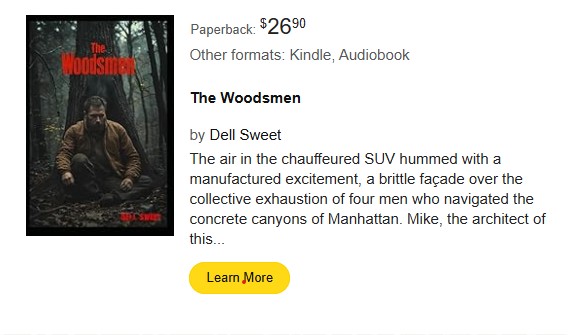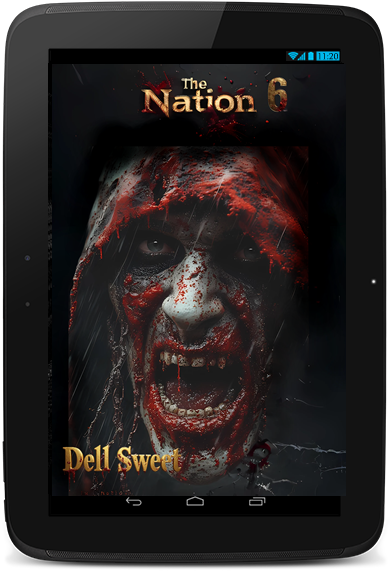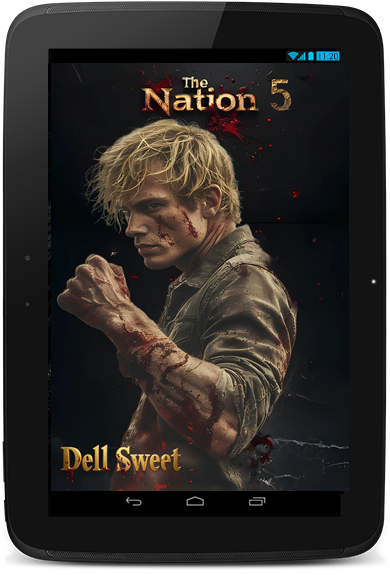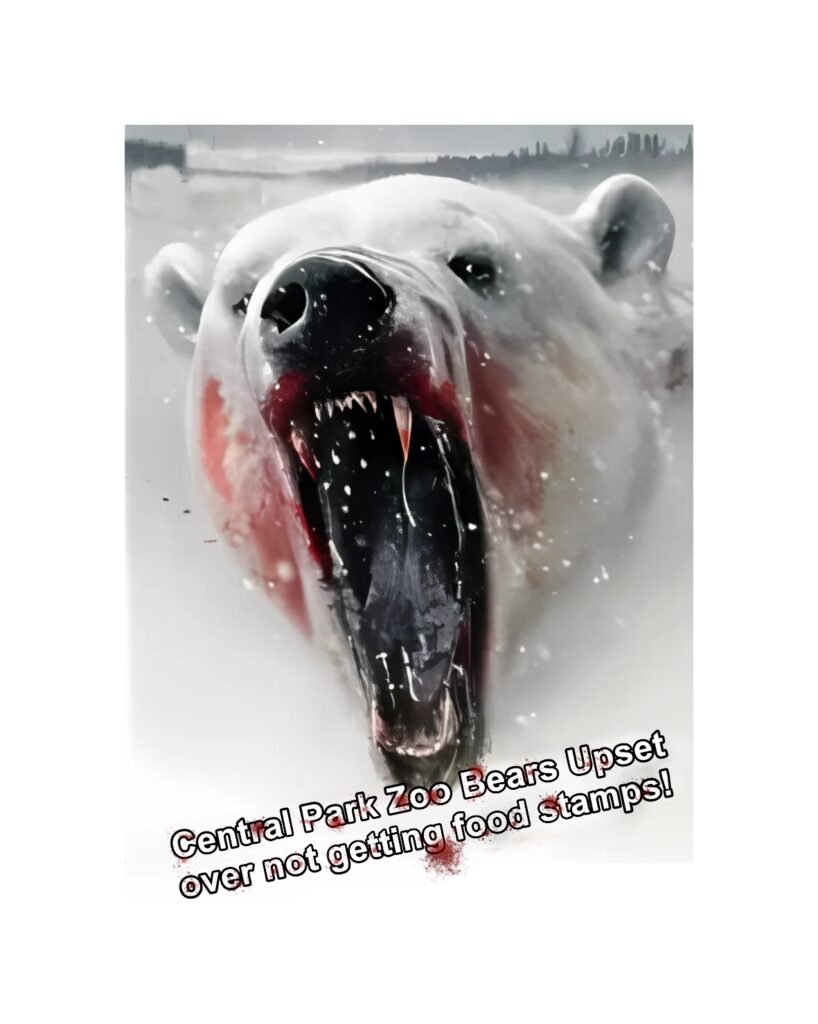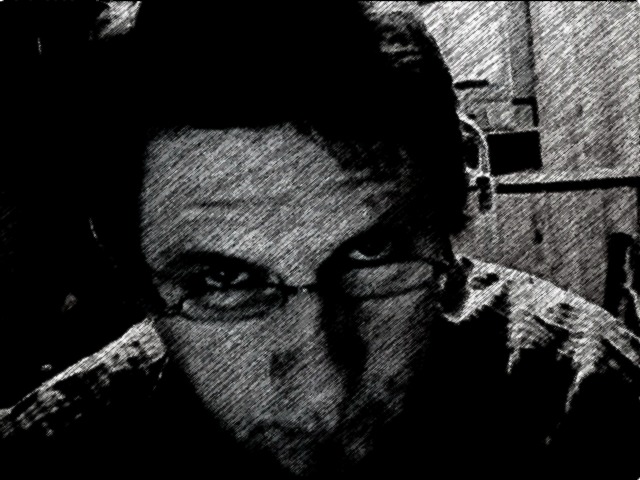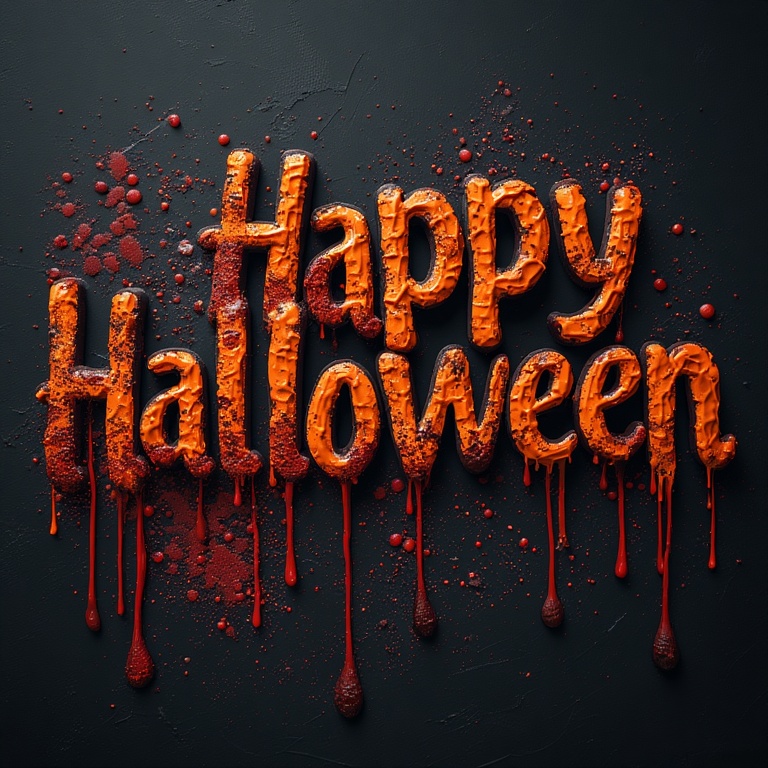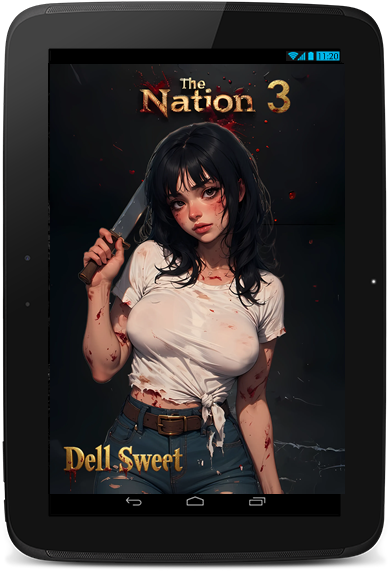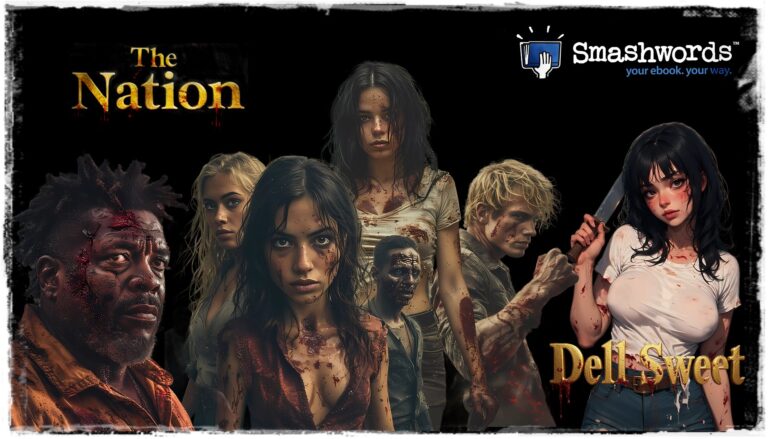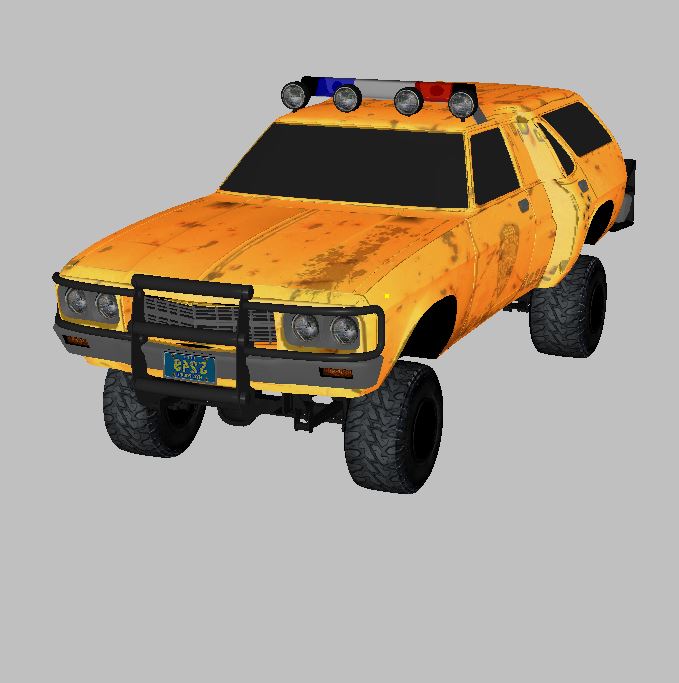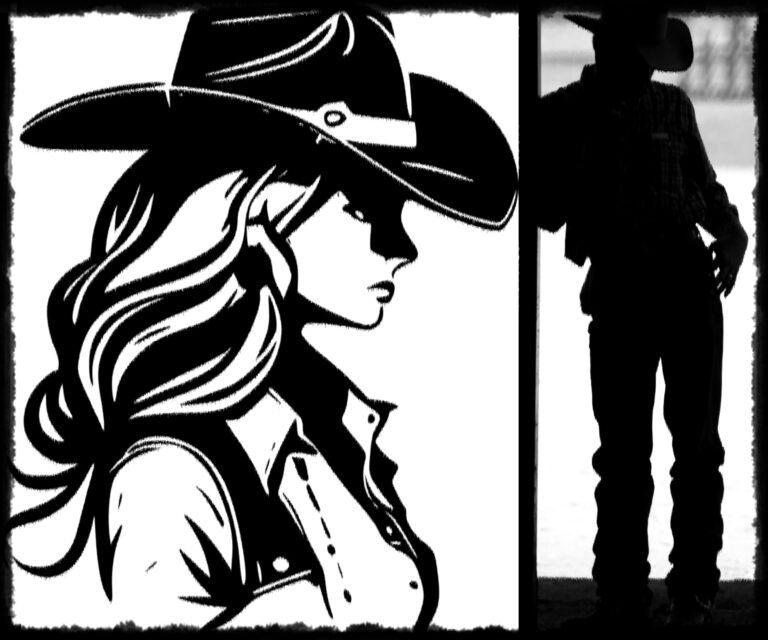The Nation 06
Series: The Nation, Book 6
by Dell Sweet
Beth levered her arms down to scoot up in the bed and nearly banged the stump of her arm against the side of the bed before Cammy stopped her. “Honey… Honey… Your arm. You have to be careful,” Cammy told her. “Oh God,” Beth whispered through her dry lips as she stared down at the stump of her arm. #Horror #Series #Dystopian #Apocalyptic
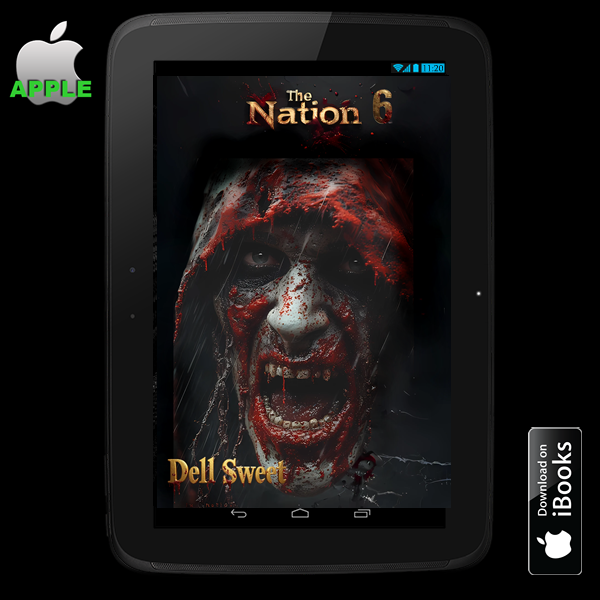
https://books.apple.com/us/book/x/id917485796
Home: https://www.wendellsweet.com
The Nation 05
Series: The Nation, Book 5
by Dell Sweet
There were four of them outside the vehicles talking or keeping watch on the parking lot. Bear and Beth, Mac and Billy. When the first one dropped, Billy spun around and clubbed it to the ground. But the rest came so fast that they could not hope to easily and quickly pick them off. #Horror #Series #Dystopian #Apocalyptic
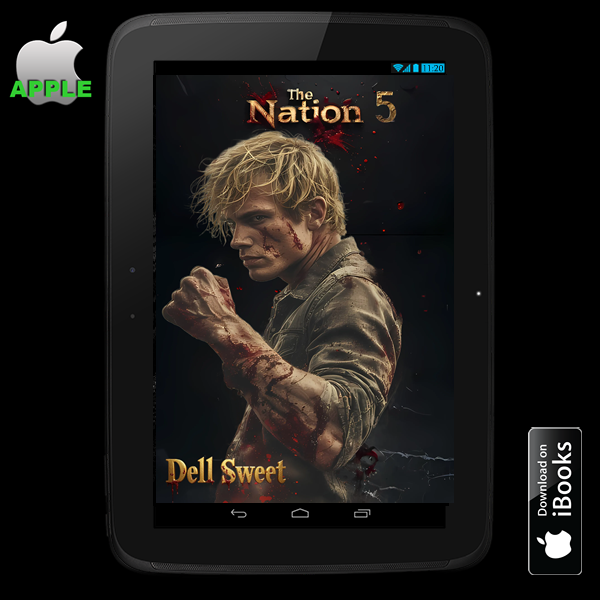
https://books.apple.com/us/book/x/id634567737
Home: https://www.wendellsweet.com
by Dell Sweet (Author) Format: Kindle Edition
The schematics for the neural network were a symphony of complexity, a testament to the intricate beauty and terrifying potential of the human mind. Emily, hunched over her console, felt a profound connection to the data streams flowing before her. Each line of code, each simulated pathway, represented a step closer to her ultimate goal: the creation of a consciousness untethered by the frailties of the flesh, a mind capable of processing the universe at speeds that would leave organic brains gasping in its wake. #readers #Kindle#Frankenstein #Horror
by W. G. Sweet (Author) Format: Kindle Edition
The Old West is a collection of five western themed stories set in the old west. Come along for an authentic trip through the west, the way it really was.
Jimson Jones, Sarah Johnson, The Cowboy, The Farmers Wife, To Hang a Thief
An excerpt from: Sarah Jones
One starless night, the tranquility of Harmony Creek was irrevocably broken. The rhythmic chirping of crickets was replaced by the terrifying sounds of shattering glass and panicked screams. A nightmare descended upon the peaceful farm. The familiar comfort of home was replaced by a brutal violence, a darkness that would sear itself into Sarah’s memory forever.
#Western #Fiction #Amazon #KU #Kindle #Readers
Kindle:
Audible:
By Wendell Sweet
One evening, I found myself back at the scene of the car accident—the snow-covered road where my life nearly ended. The scars on my body served as tangible reminders of that brutal night; the emotional scars were far deeper. The silence was deafening, broken only by the occasional rustle of the wind. The cold night air, the harsh sounds of snow crunching under my boots; it all was reminiscent of the night that would nearly cost my life. Standing there, I felt a wave of sadness, a flicker of the old fear, but it quickly subsided. The trauma was still there, woven into the fabric of my being, but it no longer controlled me. I had faced it, processed it, and emerged stronger.
#True #NonFiction #Crime #Memoir #Kindle #KU
A story from my youth growing up in a small city full of poor families like my own. The stink from the paper mills hung over the town, nearly as bad as the desperation that hung over the men of the town, short on work and hope both… #halloween #smalltown #storytime https://youtu.be/T4CXo–3cZs
Home: https://www.wendellsweet.com
The Story of J
She’s a singer, songwriter, and guitarist. J’s music style blends punk, rock, and glam, with a rebellious spirit. She’s also a pioneering female musician who’s been a huge influence on women in rock… #Music #Rock #Legend #Amazon
The Story of J The Story of J She’s a singer, songwriter, and guitarist. J’s music style blends punk, rock, and glam, with a rebellious spirit. She’s also a pioneering female musician who’s been a huge influence on women in rock… #Music #Rock #Legend #amazon
Home: https://www.wendellsweet.com
The Nation 03
Series: The Nation, Book 3
by Dell Sweet
The rusty hinges of the dilapidated shack groaned a mournful protest as Bear pushed open the door, the scent of damp earth and decay clinging to the air like a shroud. Inside, Winston lay huddled beneath a threadbare blanket, his breathing shallow and ragged. #Horror #Series #Dystopian #Apocalyptic
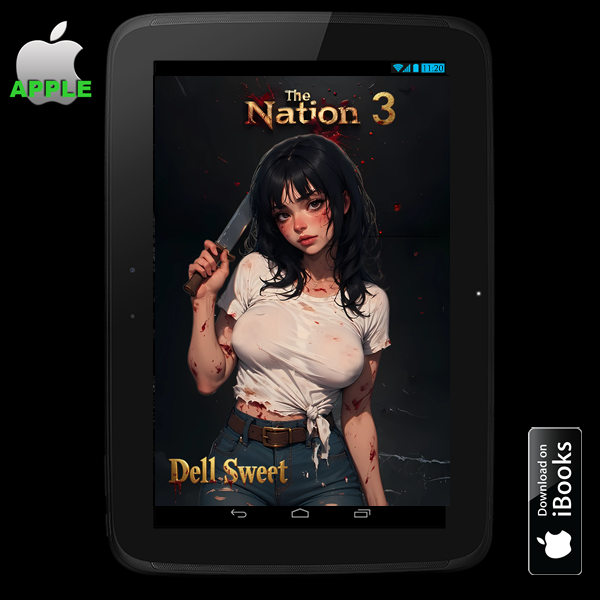
https://books.apple.com/us/book/x/id1245409334
Home: https://www.wendellsweet.com


